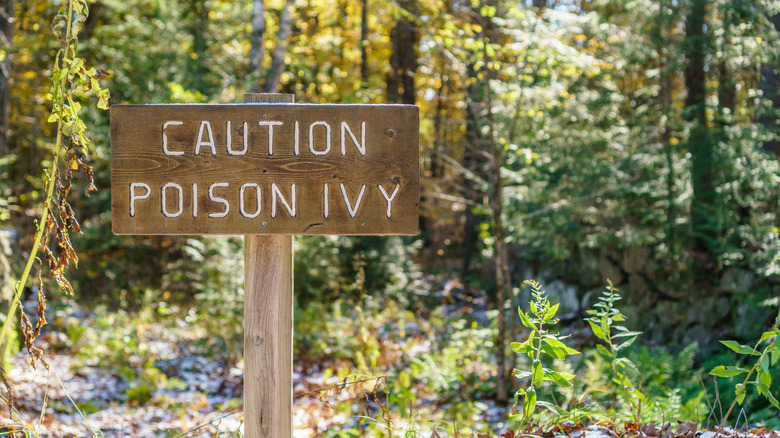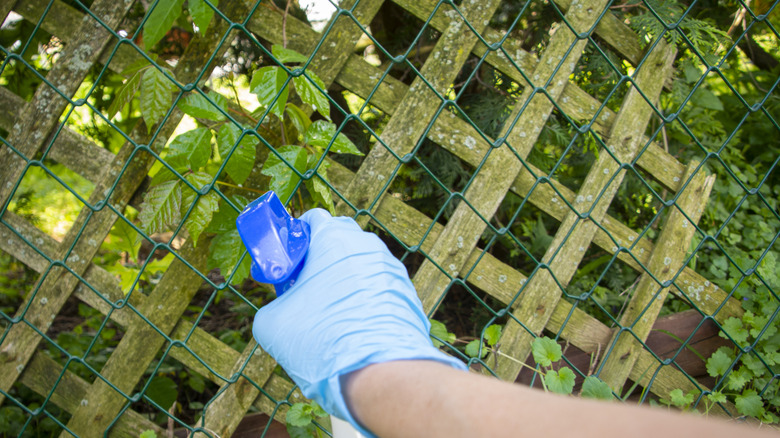The Easy Hack To Kill Poison Ivy That's Hiding In Your Kitchen
To say poison ivy can be tricky to deal with is a bit of an understatement, and if it's a pesky weed that is popping up in your yard more and more, it's important to get rid of it safely and effectively. This sneaky, fast-growing, trailing plant can hide along fences or in overgrown corners of the garden, but you'll know it's there the minute you come into contact with it. One touch of its oils to your skin can lead to a painful and itchy rash that can last for up to two whole weeks, which is enough of a reason to want to nip it in the bud as soon as you spot it. There are commercial herbicides on the market, but if you'd rather not use harsh chemicals in your yard, a simple mixture made from the vinegar in your kitchen pantry could do the job just as well.
To make your own DIY poison ivy killer at home, simply combine 1 gallon of water with 1 cup of salt, 1 tablespoon of vinegar, and 1 tablespoon of dish soap. Stir it all up well to make sure everything is fully mixed, pour the solution into a spray bottle, and then get to work spraying the poison ivy thoroughly. This is one of the most effective ways to use vinegar in your garden, and by avoiding the use of synthetic chemicals this makes it a good option for those who prefer a more natural approach to gardening.
Why this method works without damaging the rest of your garden
The reason this homemade effort works so well is because each and every ingredient is playing a crucial role in killing this much loathed plant. First, the acidity in the vinegar helps dry the poison ivy out, and you want it to reach all the way down to its roots. The salt then comes in to prevents it from being able to take in more water, further drying it out and slowly killing it, while the dish soap is just there to help the mixture cling to the leaves, so it doesn't just run off and can work more effectively. On their own, these ingredients are unlikely to do a lot, but together they all weaken the plant down so it is unable to grow back.
Bear in mind that this solution is not specific to just poison ivy; it will affect any other nearby plants it comes into contact with, so be careful and don't spray it on windy days. If you are worried, you could even use cardboard boxes to protect your plants in the same way you'd use them over winter as protection. It is also a good idea to keep applying the solution over multiple days depending on how large the patch of poison ivy is. And then once it begins to die off, use gloves to pull it out by the root as the plant can still irritate your skin even once it appears dead — those oils will remain potent for up to five years.

